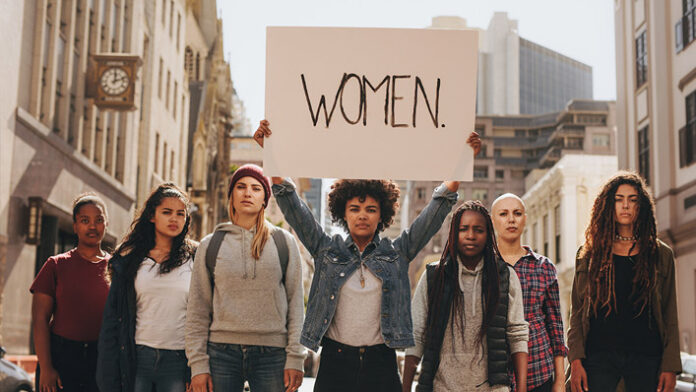A feminist movement is spreading across the world, and it appears that the U.S. presidential election sparked additional interest. The ‘4B’ movement, popular among straight women in their 20s, consists of their giving up dating, marriage, sex, and childbirth—involving men. While the movement originated in Asia, it’s gaining popularity in the U.S. after Trump, found liable for sexual abuse, was elected President for a second term.
“My goal in life and in this movement is to protect young women and girls,” said Alexa Vargas, an abuse survivor.
The ‘4B’ Movement Began in South Korea With Heterosexual Women Being ‘Done’ With Men
Nearly 10 years ago, the ‘4B’ movement came out of the #MeToo movement, reported CNN. Activists affirmed women who were sexual abuse survivors and helped raise awareness and normalize speaking publicly about abuse and recovery.
Around 2015, the ‘4B’ movement began in South Korea. Young women rallied against gender inequality in the Asian country. The movement is most popular among heterosexual women in their 20s, according to Ju Hul Judy Han, professor of gender studies at the University of California in Los Angeles.
RELATED: 30 Empowering Inspirational Quotes for Women to Uplift Your Spirit
The movement is based on four Korean words that begin with the letter “b.” The prefix “bi” in Korean translates to “no” in English. The 4Bs include: bihon (no marriage), bichulsan (no childbirth), biyeonae (no dating), and bisekseu (no sex) with men.
In 2016, a man murdered a woman close to a subway station in Seoul, Korea. The man was reported to say that he killed her “because he felt ignored by women.” This crime added fuel to the movement, now focusing on how women were treated by men—to also include femicide and digital sex crimes.
According to CNN and the Organisation for Economic Co-operation and Development, there is a great gender divide in South Korea. Women are paid about a third less than men and are rarely represented in senior executive positions.
Han said it’s not a widespread movement just yet. “When there is such widespread violence against women, there is such systemic discrimination and inequality, when there’s so much that make marriage, childbirth and child rearing … difficult, why and how could anyone imagine getting married and giving birth?”
The logistics and stunted sustainability of the ‘4B’ movement make it unlikely to be a widespread movement in the U.S., assessed Han.

